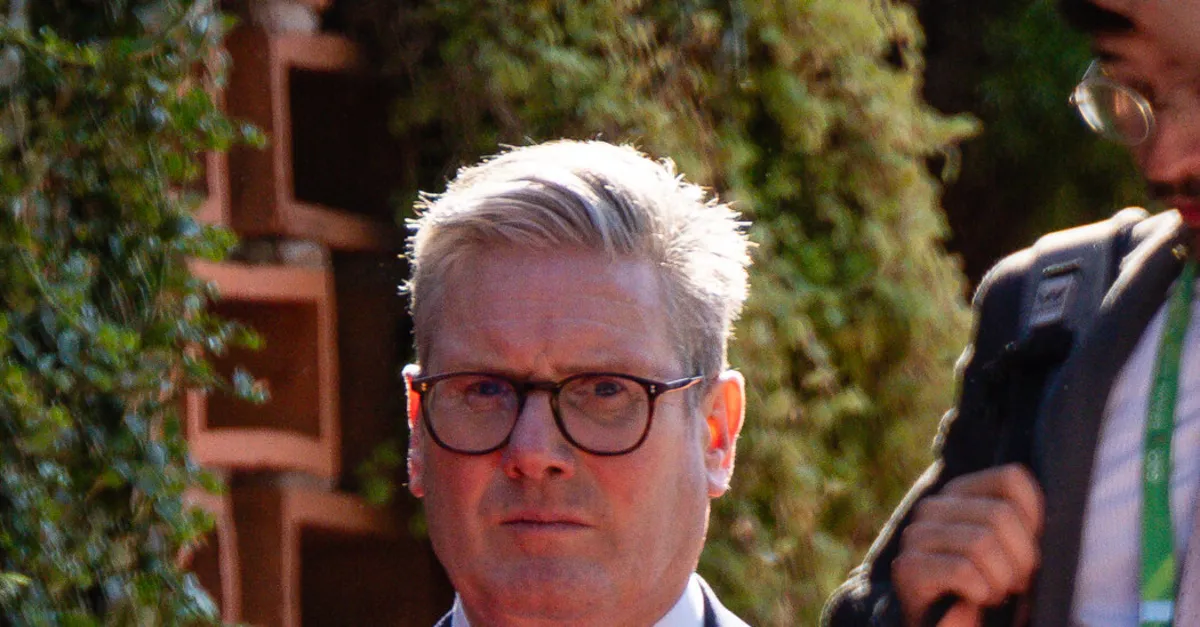
Britain, Canada, and Australia have officially recognized Palestinian statehood, escalating pressure on Israel to alleviate the ongoing humanitarian crisis in Gaza. This significant development puts three major allies of the United States at odds with the Trump administration. The announcements came just before the annual gathering of the United Nations General Assembly in New York, where France and Portugal are also anticipated to vote in favor of recognizing Palestinian statehood.
This coordinated action is expected to further isolate Israel's Prime Minister, Benjamin Netanyahu, diplomatically. However, despite this international pressure, Netanyahu's military campaign against Hamas continues unabated, resulting in the deaths of tens of thousands in Gaza and leaving large portions of the enclave devastated.
Britain's Prime Minister, Keir Starmer, strategically postponed the announcement until after President Trump's state visit to Britain. During this visit, Trump expressed his disapproval of the recognition, advocating instead for efforts to secure the release of hostages taken by Hamas. “I have a disagreement with the prime minister on that score,” Trump stated at a news conference, although he noted it was one of their few disagreements.
When Starmer first revealed plans for recognition in late July, he indicated that the final decision would depend on several conditions. He emphasized that Israel must address the humanitarian crisis in Gaza, agree to a cease-fire with Hamas to facilitate the release of hostages, and pursue a long-term peace agreement with the Palestinians based on a two-state solution. However, since the announcement, Israel has intensified its military operations, including bombing Hamas leaders in Qatar, where cease-fire negotiations are taking place.
For Prime Minister Starmer, who previously worked as a human rights lawyer, this decision represents a delicate balancing act. He has sought to maintain alignment with the United States on various issues, including trade and the war in Ukraine. Nevertheless, the situation in Gaza presents both moral and political challenges. During his joint news conference with Trump, Starmer framed the recognition of Palestinian statehood as part of a broader strategy, which includes advocating for hostage releases and rejuvenating negotiations for a Palestinian state. “Recognition is part of the overall package, which hopefully takes us from the appalling situation we’re in now,” he explained.
Starmer faced accusations from Fox News reporters suggesting he delayed the announcement until after Trump's visit. In response, he passionately condemned Hamas, which received an approving nod from Trump, who remarked, “That’s good.” Starmer also highlighted his personal connection to Israel, noting that his wife, Victoria, is Jewish and that he understands the psychological impact of Hamas's attacks on Israeli civilians and soldiers in October 2023.
Domestic political pressures have also influenced Starmer’s decision to recognize Palestinian statehood. Within his Labour Party and the broader public, calls for action have intensified as distressing images of suffering Palestinians circulate in media. “The U.K., along with others, will be under the spotlight of ‘What has recognition changed?’” stated Mr. Levy, a former peace negotiator for Israel. He warned that if recognition does not lead to tangible changes, the pressure for more decisive actions will only grow.
Critics have pointed out that Britain has not gone far enough in its stance, as it has refrained from accusing Israel of genocide, despite calls from Labour members of Parliament and legal experts. Although the U.K. has suspended some arms sales to Israel, it continues to supply components for F-35 fighter jets used by the Israeli Air Force in airstrikes on Gaza.
The British government has also imposed sanctions on two far-right ministers in Netanyahu's cabinet, Itamar Ben-Gvir and Bezalel Smotrich. Moreover, Downing Street has indicated that it may arrest Netanyahu should he enter the U.K., committing to uphold its legal obligations as stipulated by domestic and international law. An arrest warrant was issued for Netanyahu by the International Criminal Court in November.
Britain's recent actions have soured its relationship with Israel, prompting Netanyahu to express his outrage at the move to recognize Palestine. In a social media post, he argued that recognizing Palestinian statehood rewards “Hamas’ monstrous terrorism & punishes its victims.” He further warned that establishing a jihadist state on Israel's border would pose a threat to Britain in the future.